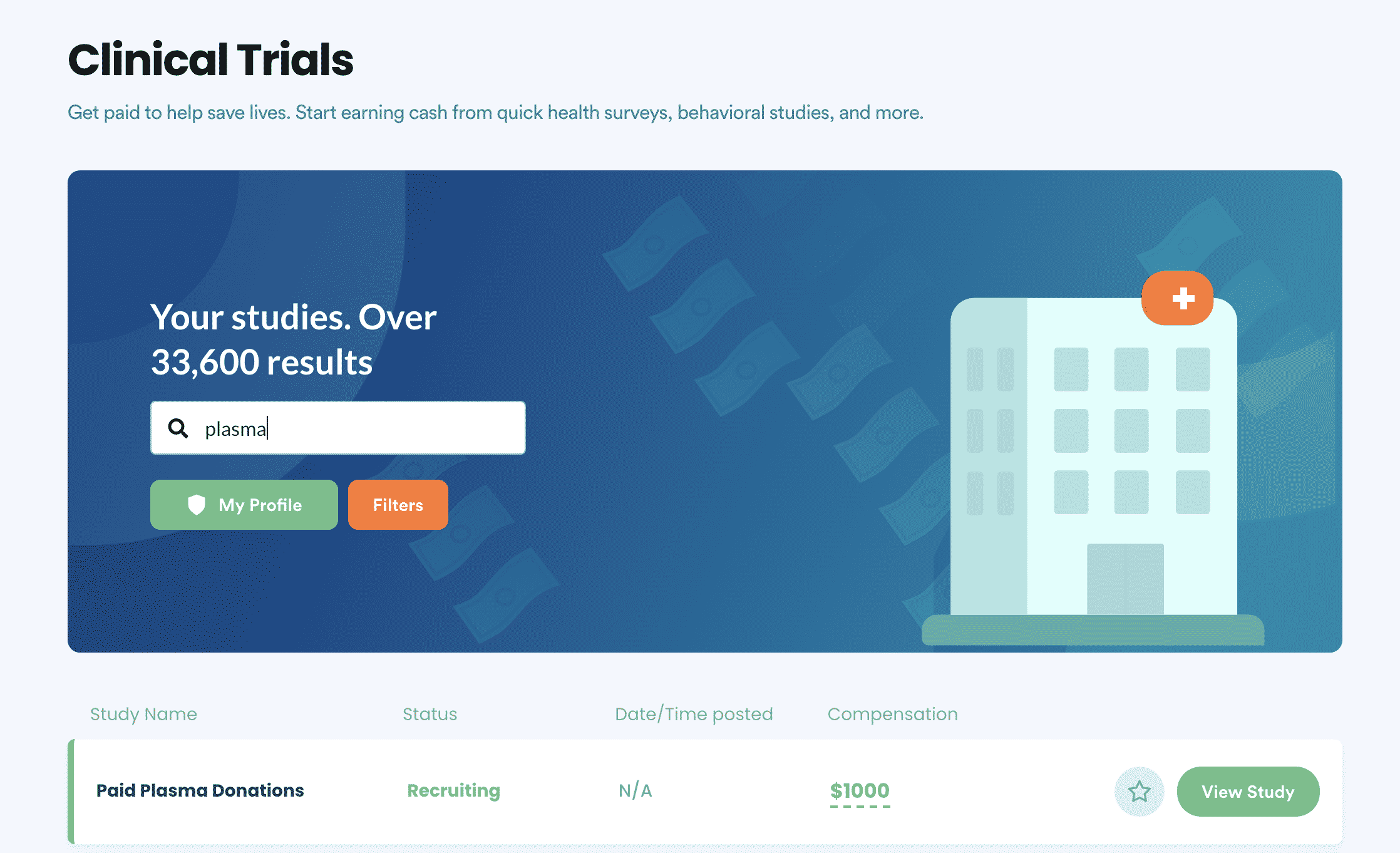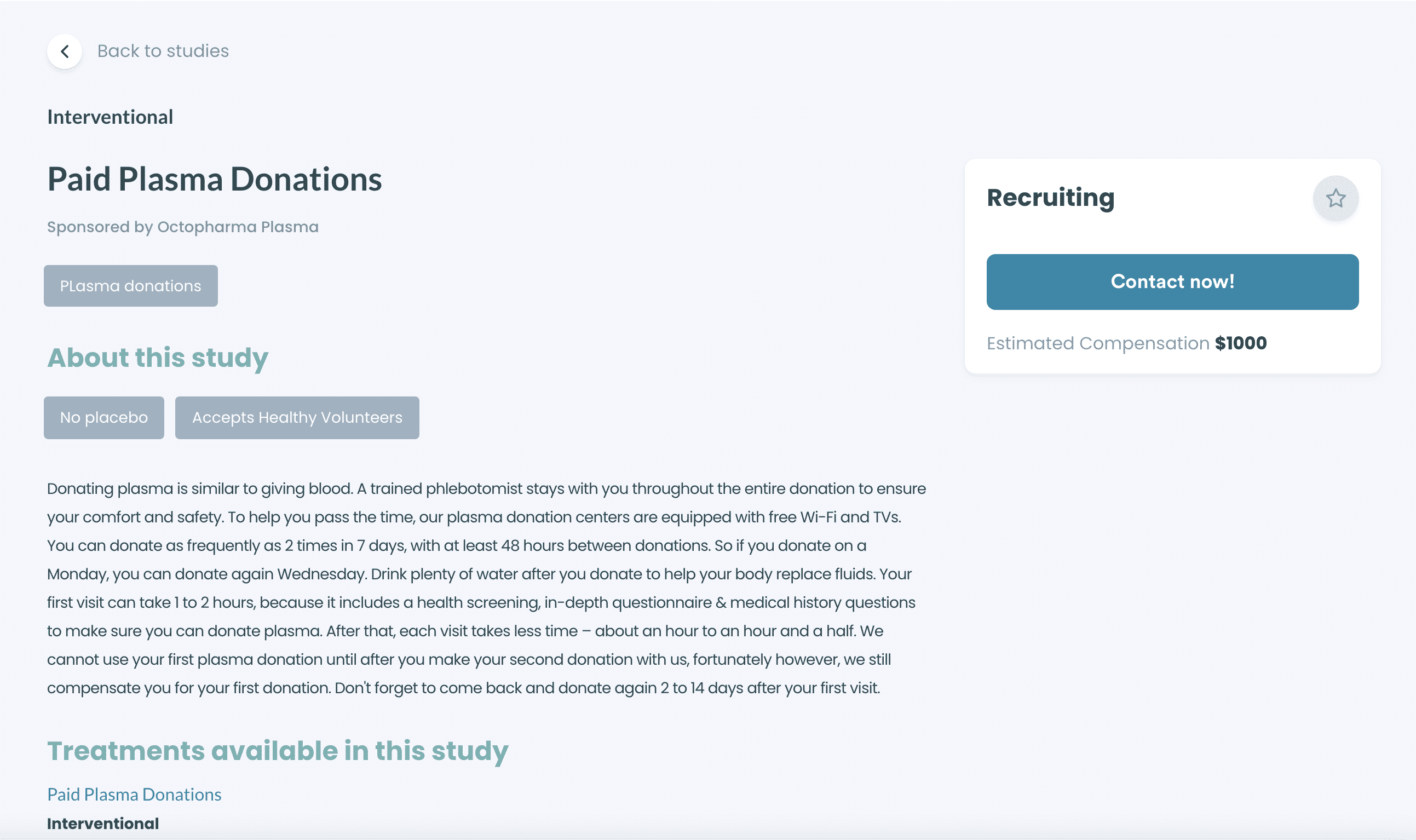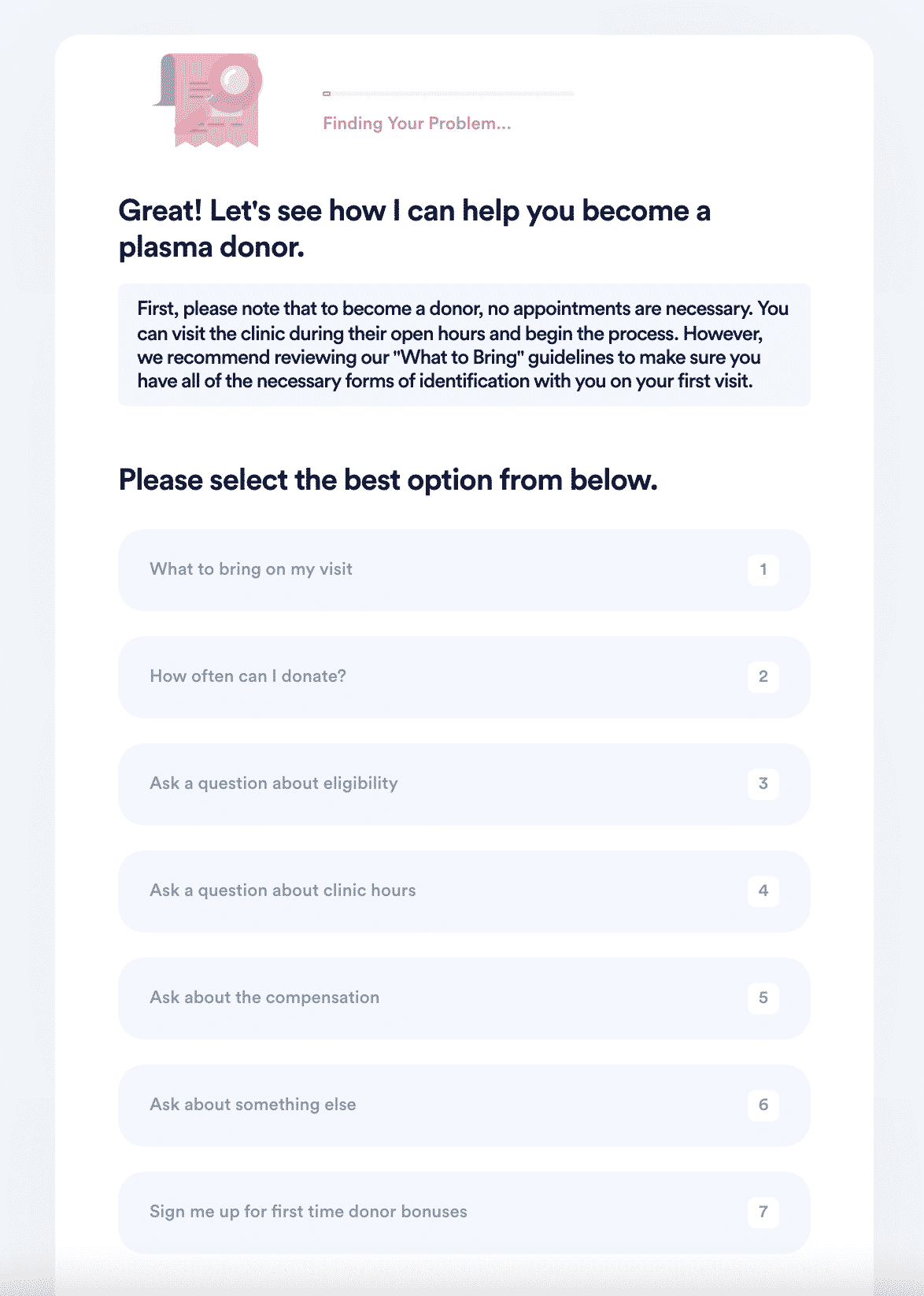Can You Donate Plasma if You Are Taking Antibiotics?
Many individuals rely on donated plasma to treat serious medical conditions, including burn victims, cancer patients, and people with liver or clotting factor disorders. help those in need live healthier more productive and fulfilling lives, and donors are compensated for their contribution.
DoNotPay helps you locate a plasma donation center near you and provides valuable information on eligibility requirements and the plasma donation process.
Eligibility Requirements for Plasma Donation
While each has its eligibility requirements, some requirements are relatively standard across facilities. Donors must:
- Be over 18 years old
- Weigh more than 110 pounds
- Complete a medical screening
- Pass a medical examination, which generally includes a blood test and viral test for transmissible viruses like hepatitis and HIV
- Provide proof of identity and address
- Follow a diet that includes sufficient daily protein intake
Eligibility is at the sole discretion of each plasma collection facility, so you will need to research any site-specific requirements before donation, including the impact of taking certain medications.
Can You Donate Plasma if You Are Taking Antibiotics?
While most medications won't disqualify you from donating plasma, some plasma donation centers will not allow you to donate plasma if you are actively taking a course of antibiotics. Other sites will assess the reason for receiving the antibiotics before determining your eligibility.
The length of time you must wait to donate will depend on the requirements of the plasma donation site and the type of antibiotic. If the underlying condition was treated, most sites will require you to wait 24 to 48 hours after completing the course of antibiotics before donating. If the antibiotics were received by injection, the wait time to donate could be as much as two weeks.
How to Learn About Plasma Donation in Your Area
Donating plasma is a great way to help others while also earning some money, but it is also a medical procedure with strict eligibility requirements. To become a plasma donor, you must find a plasma donation center in your area and research the eligibility requirements for that center. Centers have site-specific eligibility criteria, and if you start the donor process at one center, you will likely have to start the process over if you switch centers.
Unfortunately, some people decide not to donate plasma because finding a center, evaluating eligibility, and beginning the process of becoming a donor is time-consuming and overwhelming.
Use DoNotPay to Help Become a Plasma Donor
DoNotPay makes it easier to become a plasma donor. DoNotPay's plasma donation service will help you find a plasma donation center in your area, detail the eligibility requirements, and answer any questions you have about the process, including compensation structure.
Here's how you can use DoNotPay to become a plasma donor:
- Search "plasma donations" on DoNotPay and find the nearest donation clinic through our clinical trials product.

- Select the "Contact Now" button to learn more about eligibility criteria, contact the clinic with questions, or sign up for first-time donor bonuses.

- Verify your information and submit your inquiry! DoNotPay will contact the clinic on your behalf and make sure your questions get answered.

DoNotPay helps more people become plasma donors by making the process more efficient and accessible. If you have been overwhelmed at the prospect of plasma donation, DoNotPay is here to help.
DoNotPay Works Across All Areas With the Click of a Button
DoNotPay will help answer your questions about plasma donation in any geographic area. Because eligibility requirements differ from center to center, it is important to research any new center where you plan to donate. Additionally, DoNotPay can help you find answers about plasma donation for friends or family located in a different city or state
DoNotPay's plasma donation service does more than simply direct you to a plasma donation center in your area. Use DoNotPay to get answers to all your questions about plasma donation, including:
- How frequently you can donate plasma
- Eligibility requirements for donating plasma
- Whether you are prohibited from donating plasma after receiving a COVID vaccine
- The minimum age for donating plasma in your area
- How much time donating plasma will take
- Any conditions that will disqualify you from donating plasma
- If you can donate plasma if you are diabetic
DoNotPay is here to make it easier for potential plasma donors to begin giving the gift of life. Why donate plasma?
| Earn money | You can earn a hefty amount of money by donating plasma. If you're opting to donate plasma for cash, you can earn around $1,000 each month. |
| Make an impact | Plasma donation is, undoubtedly, a great way to make an impact. Thus, helping you to improve the quality of someone's life. |
| Boost your mood | Recent studies suggest that donating something directly boosts your mood. By donating plasma for money, you can reduce your stress level. |
| Eat better | Being a plasma donor helps you to improve your diet. You will be educated to cut down on fatty foods and limit other unhealthy food. |
| Be healthier | Donating plasma will help you lower the cholesterol levels in your body. |
What Else Can DoNotPay Do?
DoNotPay is a go-to resource for much more than plasma donation. Take some time to explore other ways DoNotPay can make your life easier, like:
- Learning about and preparing advanced health care directives and
- Requesting a copy of a birth certificate
- Participating in clinical trials
- Filing and appealing insurance claims
- Requesting sick leave
After you get all your plasma donation questions answered, be sure to check out the full scope of DoNotPay offerings to see how they can make your life easier!


